Top 6 Best URL Blockers for Mac, Windows, iOS and Android
 8.0K
8.0K
 3
3
There are several common scenarios where you may need to block URLs. By blocking distracting websites for studying or working, one can become more focused and productive. Many people, especially parents, have the need to block access to inappropriate URLs and websites. This article provides a list of 6 best URL blockers to block unwanted websites on desktop and mobile. I hope it can help you choose the URL blocker that suits you best.
 Cisdem AppCrypt
Cisdem AppCrypt
The Best URL Blocker for Computers & Phones
- Block websites and webpages on Chrome, Edge, Safari and more browsers
- Block specific sites/pages, and URLs containing user-specified words
- Let you block popular sites in certain categories, like social media, with 1 click
- Let you block all porn sites with 1 click (on Windows, Mac, iPhone and iPad)
- Can also block all websites except a few
- Also lock individual apps with password
- Let you block websites and lock apps permanently or at scheduled times
- Easy to use
- Hard to bypass
- Help with parental controls, productivity and privacy protection
- Available for Mac, Windows, iPhone and iPad, and Android
Top 6 URL blockers
#1 Cisdem AppCrypt
Compatibility: Windows, Mac
If you are a Windows or Mac user, you can use Cisdem AppCrypt.
Pros
- Block specific URLs
- Block all URLs from a certain domain (like youtube.com)
- Block URLs containing specific words
- Let you add all popular sites of a certain category (like social media) to block with a click
- Support browser like Chrome, Safari, Edge and more
- Provide a schedule feature
- Easy to use
Cons
- None
Step 1. Download and install AppCrypt.
 Free Download macOS 10.12 or later
Free Download macOS 10.12 or later  Free Download Windows 10 or later
Free Download Windows 10 or later
Step 2. When you open this URL blocker for the first time, set a password. (It’s recommended to select the Launch at System Startup checkbox.)
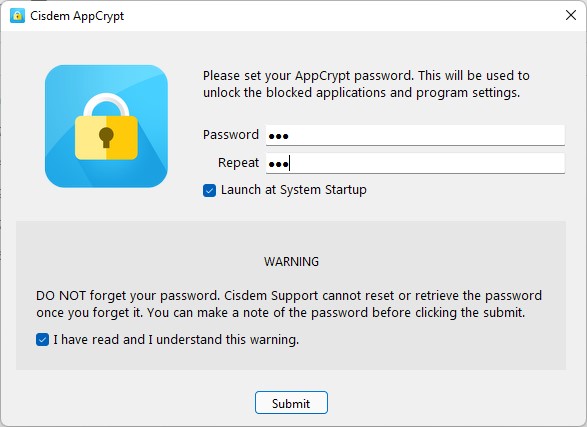
Step 3. On a Windows PC, click the lock icon in the taskbar. Choose Open Main Window. On a Mac, click the icon in the menu bar.
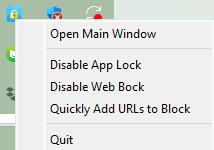
Step 4. Enter your password to access the main window.
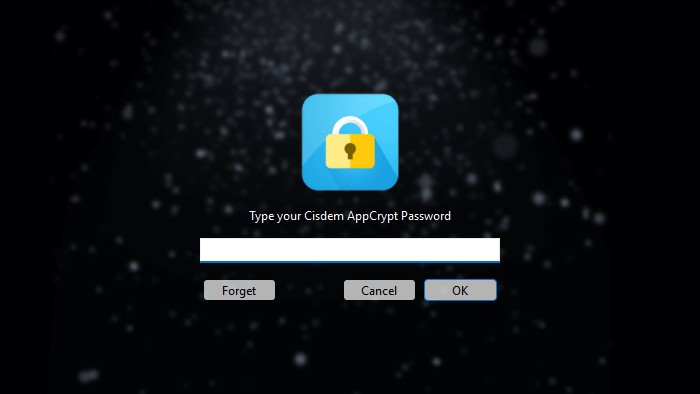
Step 5. Click the Web Block tab in the main window.
Step 6. To block a specific URL (like youtube.com), just enter it in the URL field . Click Add.
To block all URLs with a certain word (like game), just enter the word. Click Add.
To block a category of websites (like social media), click the Import button. Select the category.
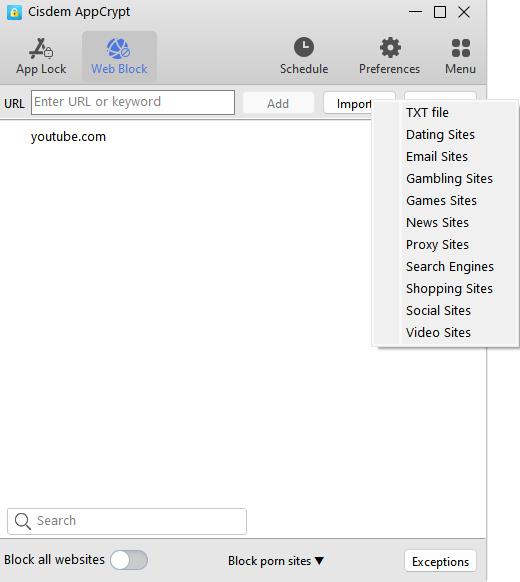
When you try to visit a blocked URL, the page won’t open. Instead, it will show you the following image, telling you that the access is blocked.
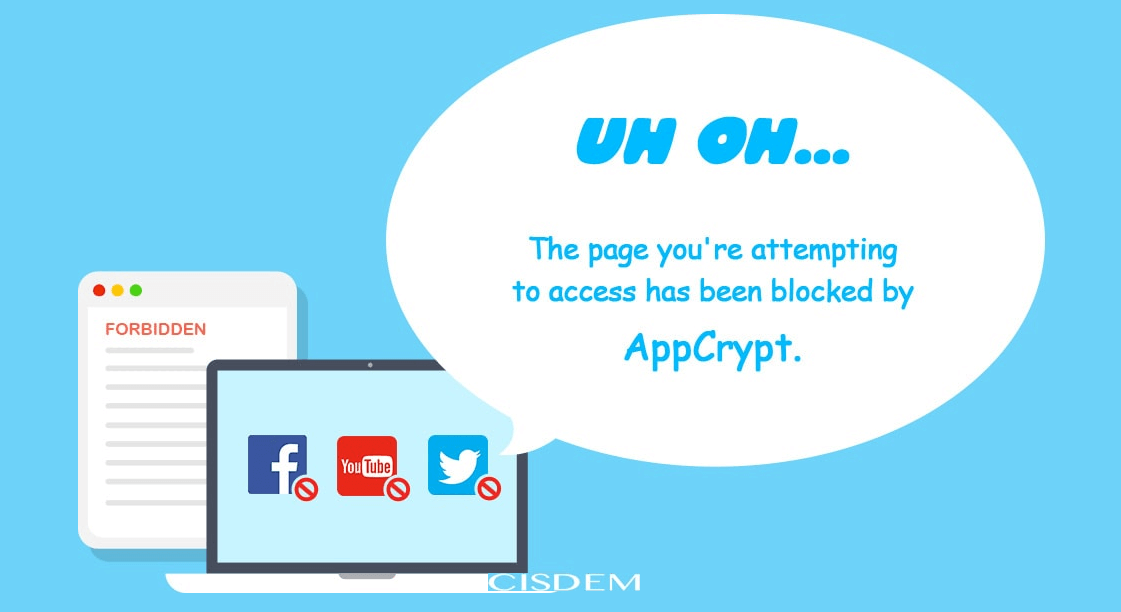
To unblock a URL, you can remove it from the list under Web Block, disable AppCrypt’s web block feature, or quit AppCrypt. Any of these actions requires the password.
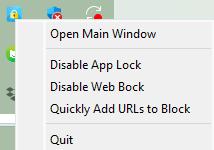
Tips
If you want to use this URL blocker for self-control or productivity, you can ask a family member or someone else that you trust to set the password for you. Without knowing the password, you won’t be able to bypass the blocking.
If you turn on the Block all websites option, click Exceptions, and then add specific URLs or domains to the Always Allow list, this URL blocker will block the entire web except the ones on the allow list.
By default, the blocking is permanent as long as this URL blocker is running. If you want, you can set a general schedule or custom schedule to apply the blocking only during certain times, for example, work hours.
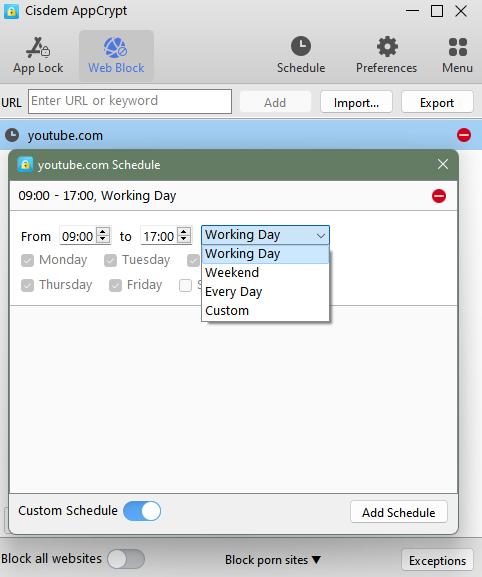
#2 URL Blocker
Compatibility: Windows 7, Windows 8, Windows 10
Looking for free URL blocker software for Windows? This one can be a good choice. With it, Windows users can easily block access to specific URLs on web browsers like Chrome and Firefox.
Pros
- Free to use
- Require no installation
- Support multiple web browsers
- Enable you to export and import the list of URLs to be blocked
- Let you switch between light theme and dark theme
Cons
- Can’t let you create a password
Step 1. Download and install URL Blocker. Open it.
Step 2. Click Add in the bottom right corner of the interface. Enter a URL. Click Add again. You can add URLs one by one.
.png)
Step 3. When you finish adding, click Apply in the top right corner.
The URLs that you have blocked will immediately become inaccessible.
Here's how to unblock URLs. In this URL blocker for Windows 10, select the checkbox before a URL and click Delete.
There is no option for you to create a password. As a result, this tool may not be effective enough if you want to block URLs for productivity at work. You can effortlessly unblock a distracting website or just quit the blocker itself. There isn’t any restriction. But it can be useful in some scenarios. For example, you can install this free website blocker on a family computer to prevent kids from visiting inappropriate URLs. It’s likely that kids can’t figure out how to get rid of the blocking.
#3 Cisdem AppCrypt (for Android)
Compatibility: Android 8.0 and up
If you are looking for an URL blocker for Android, you can try Cisdem AppCrypt. This app provides a URL blocking feature and other useful features.
Pros
- Block user-specified websites
- Block all URLs including any use-specified keyword
- Support all popular browser, like Chrome, Samsung Internet, Opera and Firefox
- Let you set the blocking to be active permanently or during certain hours
- Provide password protection
- Also lock apps with a PIN or pattern
Cons
- None
Step 1. Install AppCrypt.
Step 2. Set a PIN or pattern the first time you launch it.
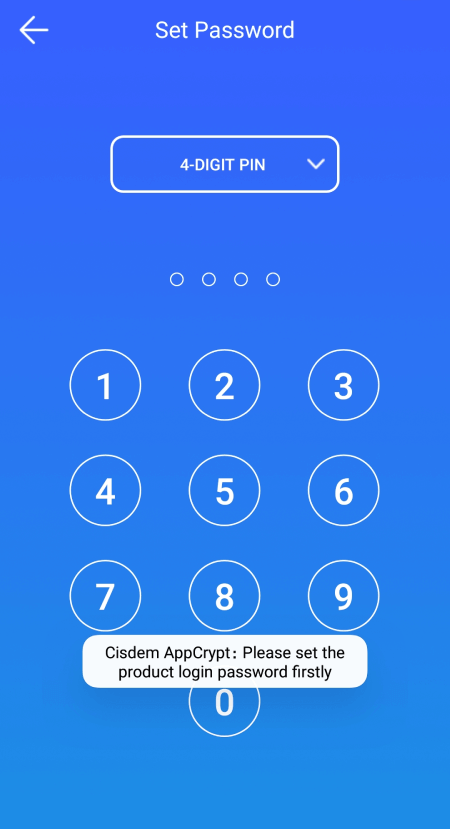
Step 3. Tap the Web Block tab.
Step 4. Enter the URL you want to block and then tap Add. Repeat this step to add other unwanted URLs.
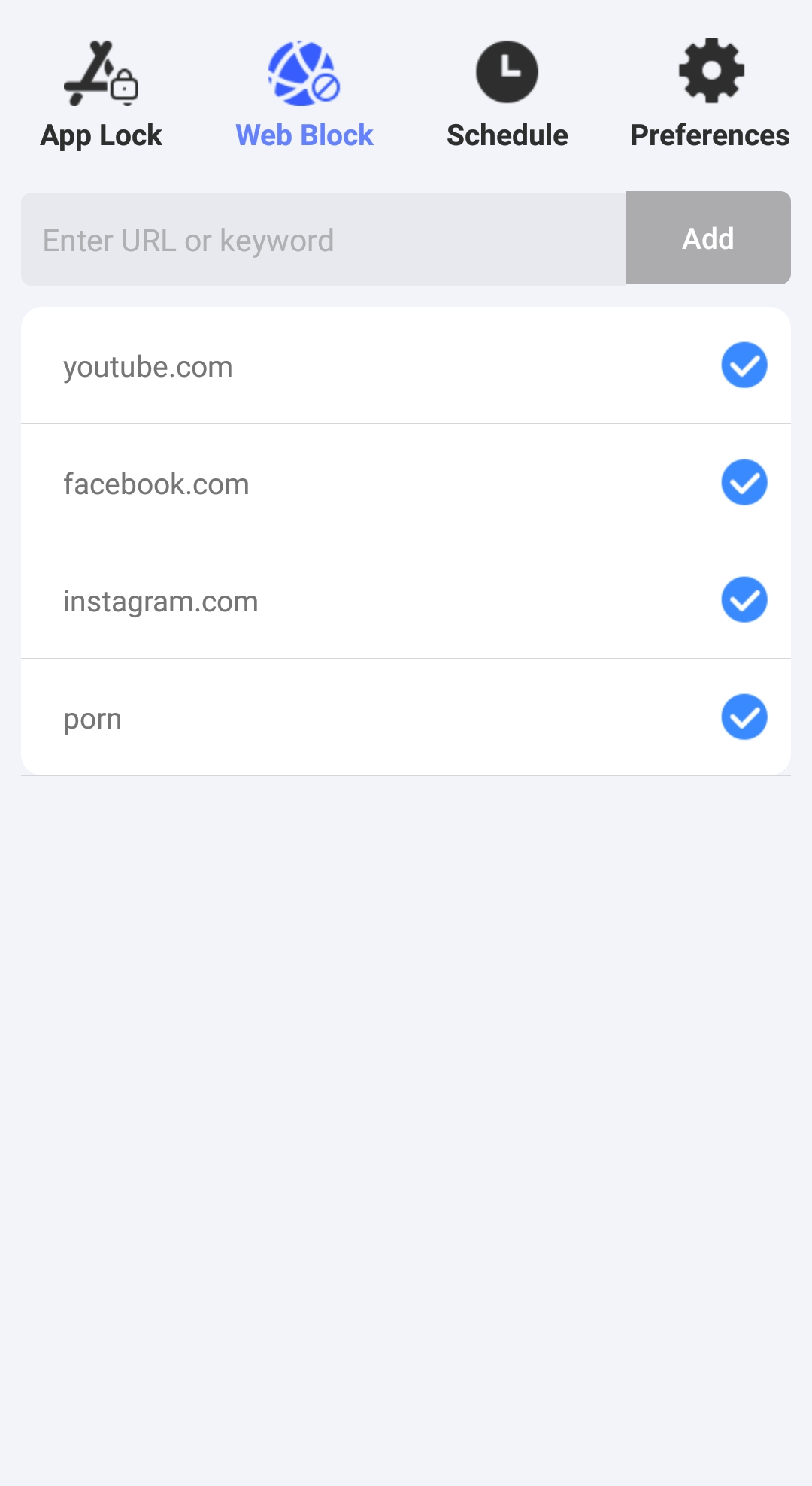
Step 5. Optionally, add the unwanted keywords one by one.
Tip
By default, the blocking is forever. If you prefer to block URLs only during certain hours, you can use the schedule feature. It allows you to select the days of the week and times of the day.
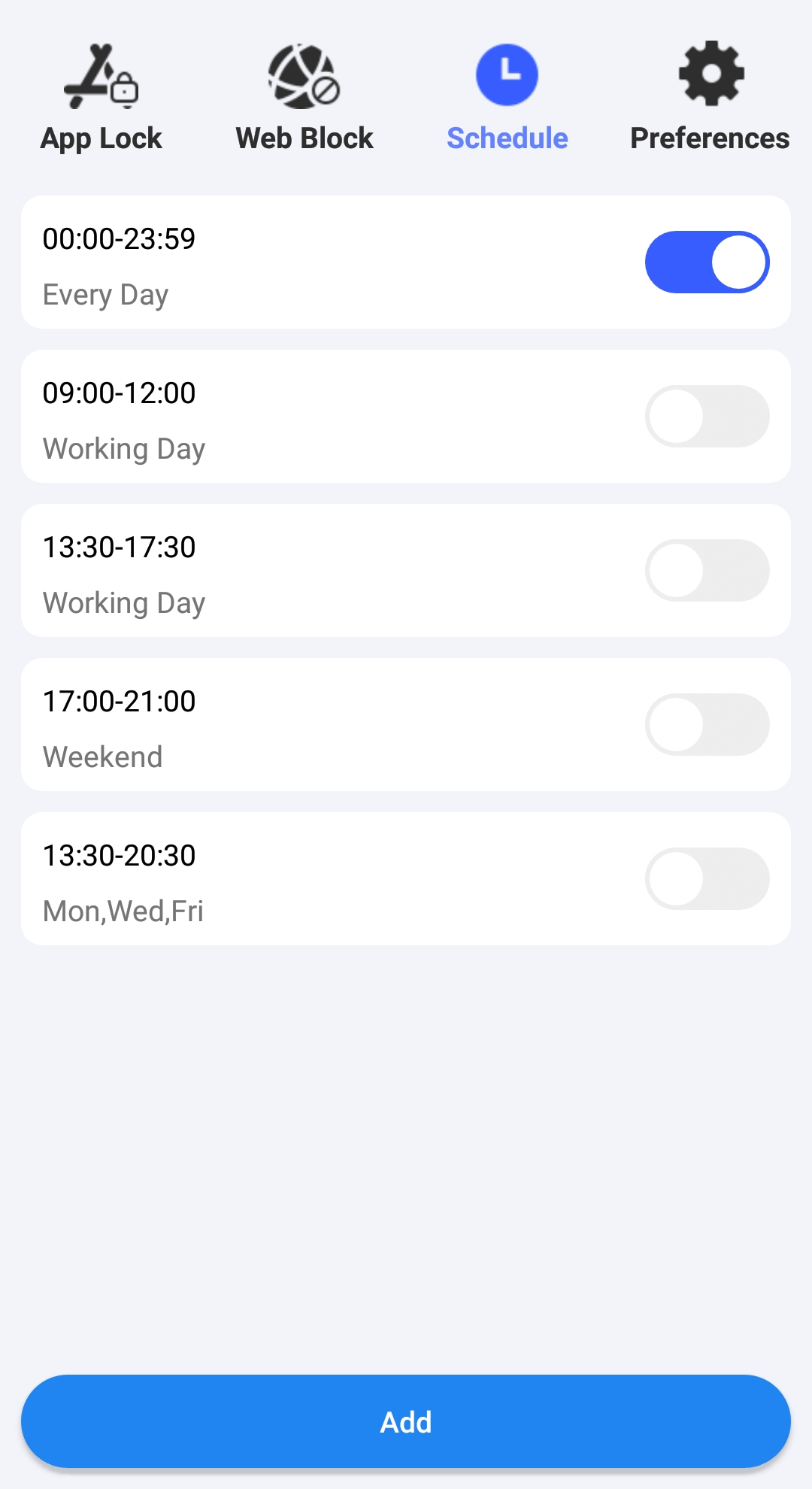
#4 Cisdem AppCrypt (for iPhone & iPad)
Compatibility: iOS 16.0 or later; iPadOS 16.0 or later
AppCrypt is also available for iPhones and iPads. It helps you to easily control access to websites.
Pros
- Block specific websites
- Block all URLs containing adult content with a tap
- Support Safari, Chrome and other browsers
- Offer other features, such as app locking, scheduling, etc.
- PIN-protect blocking
Cons
- Not available for earlier operating system versions
Step 1. Install AppCrypt.
Step 2. In the Web Block tab, type the URL of the website that you want to block and then tap Add. Add other unwanted URLs one by one.
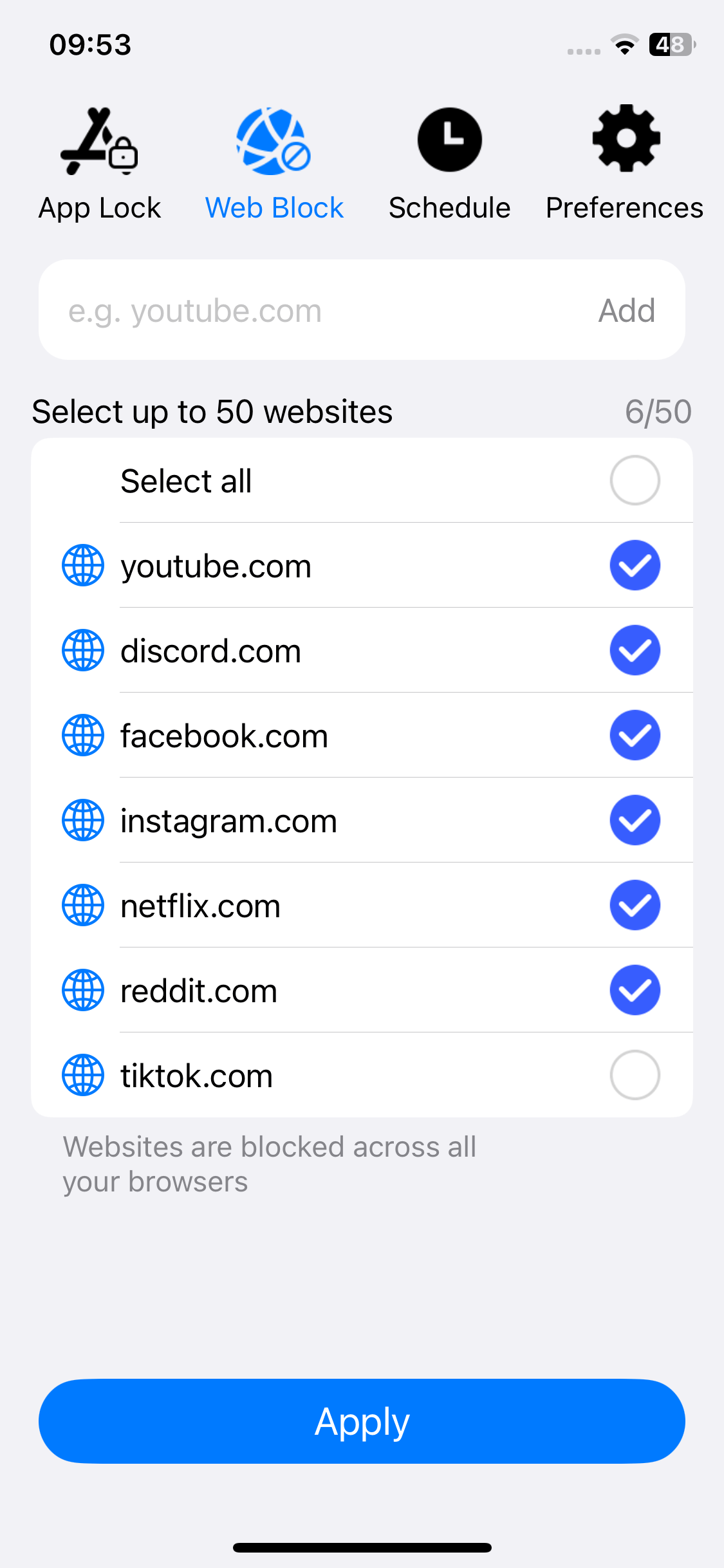
Step 3. Optionally, turn on Adult Blocking in Preferences. This will block all websites that include adult content.
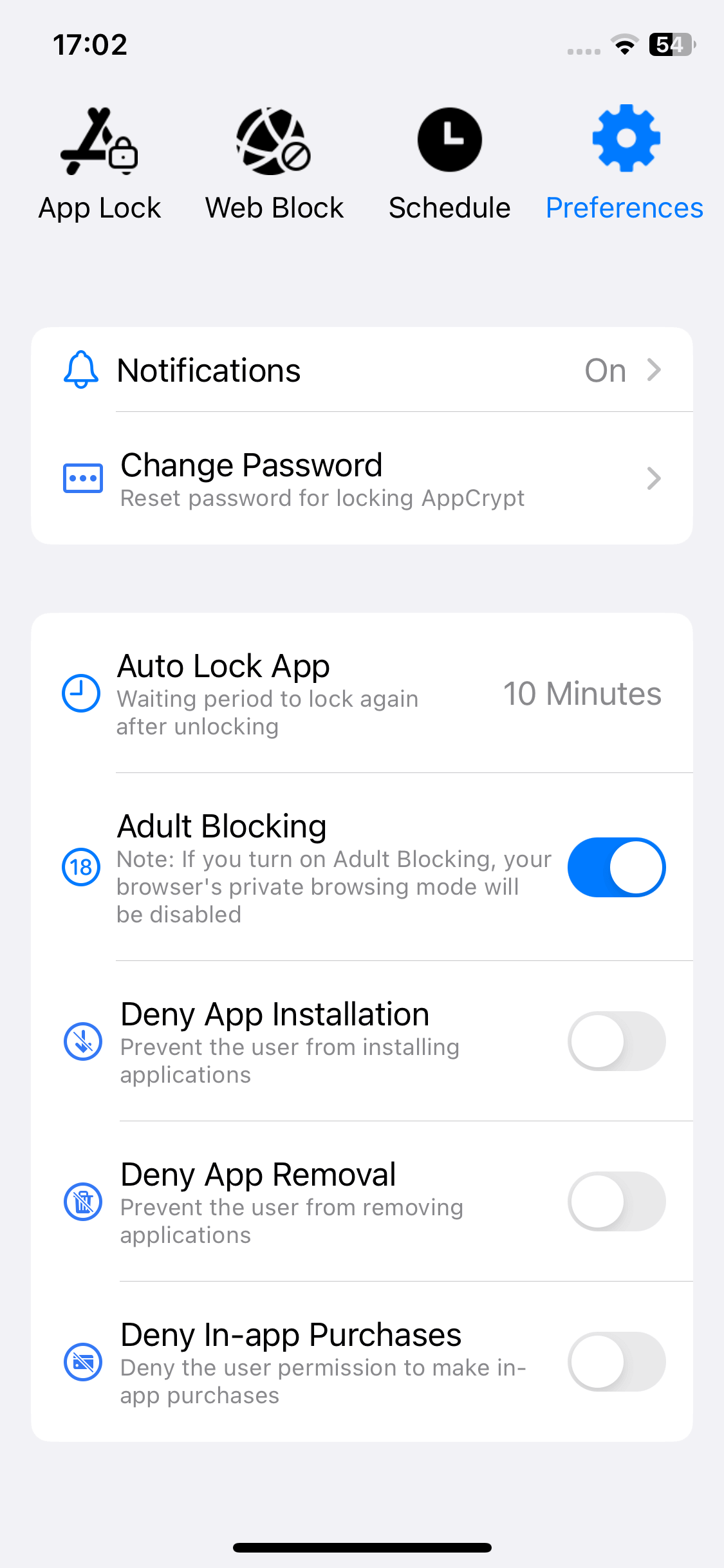
Step 4. Tap Notifications in Preferences. Turn on Notification and then Notification unlock. Set a PIN when prompted.
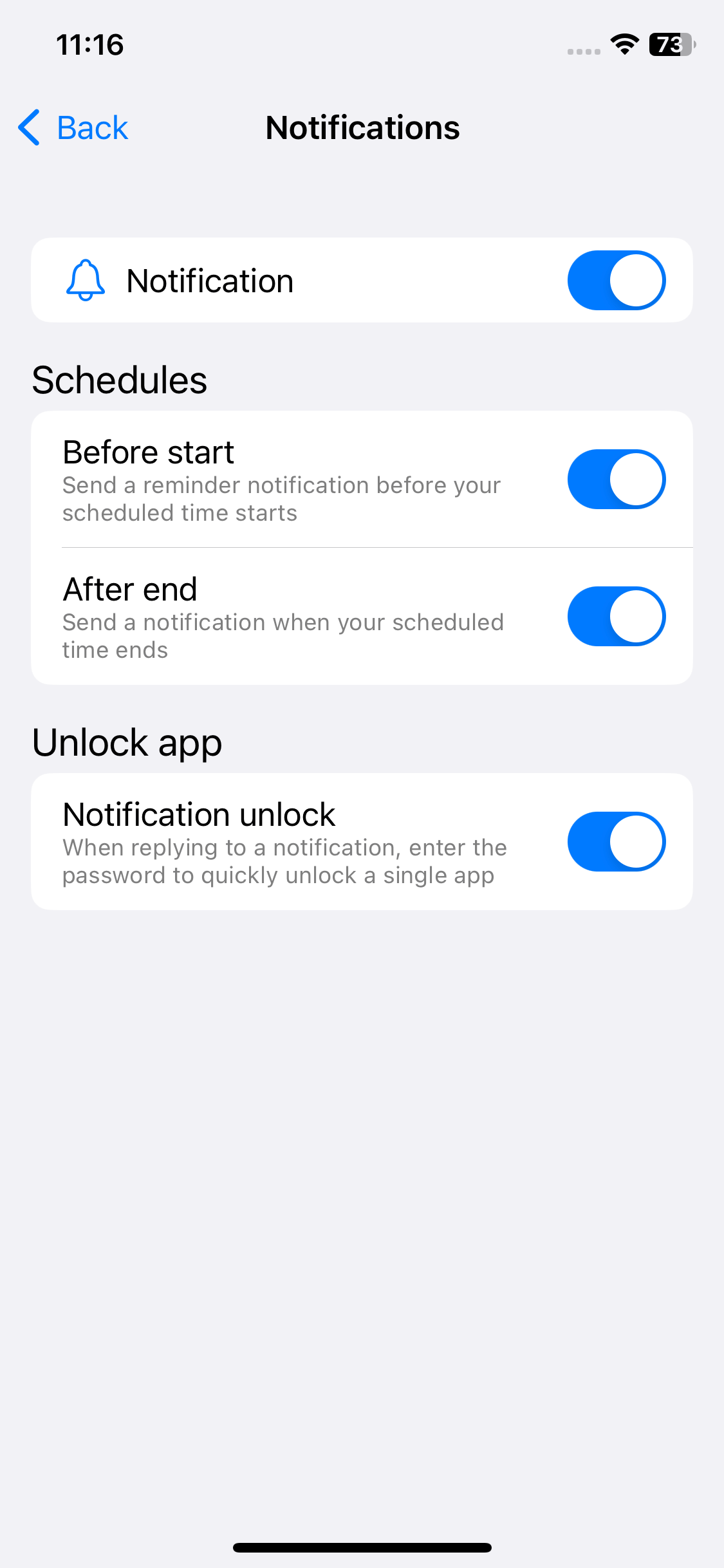
Now the URLs you have specified are blocked on browsers like Safari and Chrome. The AppCrypt settings are blocked by the PIN, so only those who know the PIN can unblock URLs.
#5 BlockSite (extension)
Compatibility: Chrome, Firefox, Edge
The above-mentioned Android app BlockSite also has an extension version, which supports multiple browsers. If you prefer installing a free URL blocker extension on your web browser, then you can consider BlockSite.
Is BlockSite safe? Based on my experience, it’s safe to install and use. It’s also easy to uninstall. You can remove it from your browser at any time.
Pros
- Block access to specific URLs and websites
- Block websites by category or keyword
- Let you effortlessly add the current site to block with a click
- Offer a Whitelist mode to allow only certain URLs
- Allow you to block URLs during certain hours with the Scheduling feature
- Offer password protection to protect your blocking settings
Cons
- Can be easily disabled or removed even with a password
- Only work with the one browser on which the extension is installed
Step 1. Go to the Chrome Web Store. Enter "blocksite" in the Search Extensions box. Hit the Enter key. You should find this URL blocker extension in the results. The extension is offered by https://blocksite.co/.
Step 2. Add it to your Chrome. Once the installation is finished, the extension's icon will appear in the Chrome toolbar.
Step 3. There are two ways to add an unwanted website to this URL blocker. Here I will take facebook.com as example.
- Visit Facebook on your computer. Click the BlockSite icon in the toolbar. In the box that pops up, click Block this site.
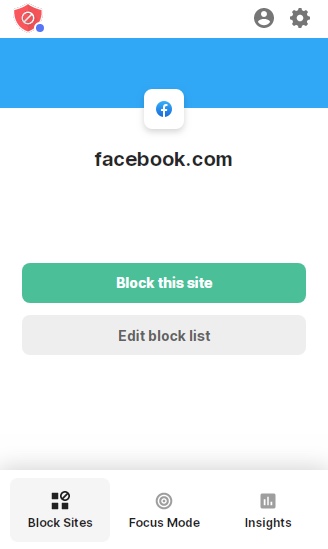
- Perform a right-click, hover your mouse over the BlockSite option and choose Block this site.
Now facebook.com is blocked. The steps are similar on Firefox.
Note that it's easy to remove this URL blocker extension from a browser if even you have added password protection.
Tips
After the extension is installed on your Chrome, you can still bypass the blocking by opening an incognito window where the extension doesn’t work. To prevent this, right-click the extension, choose Manage Extensions and enable Allow in incognito.
Click the URL blocker extension in the toolbar and choose Edit block list. Now you have access to all the settings and options and can easily edit your block list.
#6 Cisdem Web Blocker (extension)
Compatibility: Chrome, Edge, Firefox
If you are not happy with the fact that the URL blocker extension mentioned above only allows users to block three URLs for free, you can check out another extension called Cisdem Web Blocker, which is totally free to use. This extension works in Chrome, Edge, and Firefox browser. And is very easy to use due to its simple and easy-to-understand interface.
Pros
- Let you block specific web addresses or entire websites
- Let you add an unlimited number of URLs to the blocklist for free
- Easy to use and beginner-friendly
Cons
- Can be bypassed
- Need to install the extension to browsers one by one
Step 1. Install the Cisdem Web Blocker extension in your browser.
Step 2. Open the website you want to block.
Step 3. Click the Extensions icon in the browser toolbar. Then select Cisdem Web Blocker.
Step 4. Choose Add this URL to Block List.
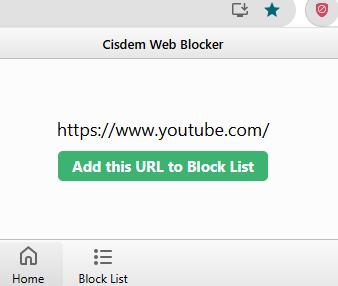
You can also manually enter a specific URL into the Block List if needed.
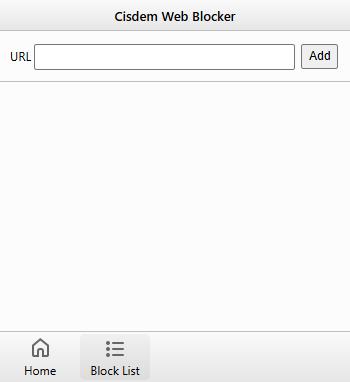
Conclusion
Hopefully, you can find the best URL blocker that suits you from this list. By using a URL blocker, you can easily block access to URLs and websites contain distracting or inappropriate content. You can use it to get rid of distractions such as social media while working or studying. Parents can also use URL blocking software for parental control purpose.

Norah Hayes likes to share her tips on how to improve focus and stay motivated at work. She believes it is essential to eliminate all online distractions during work hours.

Ethan Long joined Cisdem in 2015 as a developer and now serves as the editorial advisor for Cisdem AppCrypt. He actively tests and uses Cisdem AppCrypt and other screen-time management tools to ensure AppCrypt meets its promises in real-world scenarios.


















Julia Holm
I have tried several apps before this. Appcrypt is by far the most reliable. I can block inappropriate sites on my kids' Mac and he can't easily bypass it.
Ivan Chevillote
Thank you for this article. I have successfully overcome my internet addiction using the tool.
Andrea Gaertner
Thank you! the first tool is the best.